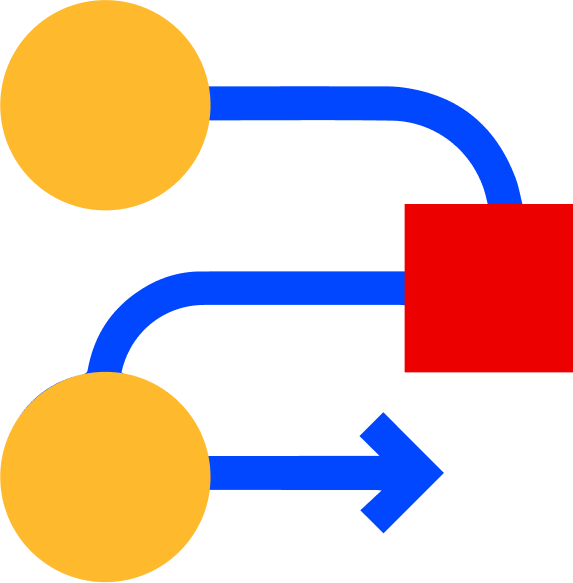Bringing Order to Collaboration Chaos: How to Build a Smarter Legal Data Stack


Did you know that AI adoption within the legal profession nearly tripled, growing from 11 percent in 2023 to 30 percent in 2024? According to the American Bar Association's Legal Technology Survey, this shift marks a significant turning point in how legal work is done.
This growth reflects legal professionals adopting AI in ever more critical workflows. Today we're taking a closer look into how that transition enables smarter investigation software, enhanced handling of FOIA requests and DSARs, and better legal redactions... all forming the backbone of a smarter legal data stack.
The Modern Legal Data Problem
Legal work now involves handling more data than ever before. Files come from many sources, and they often arrive in different formats. There are three main problems that stand out:
- Disconnected systems and tools
- Slow, manual review processes
- Higher risk of missed or incorrect information
Disconnected Systems and Tools
Many law firms and legal departments use several separate tools for storing and reviewing data. These systems often don't work together, which means people spend extra time moving files from one platform to another. That time could be better spent on reviewing and making decisions.
Slow, Manual Review Processes
Large amounts of data often require staff to search by hand for relevant information. It slows progress and creates pressure to meet deadlines. Manual review also increases the chance of human error.
Higher Risk of Missed or Incorrect Information
When data is scattered or reviewed manually, it's easier to miss key details. This can lead to incomplete findings or incorrect conclusions.
For investigations software to be effective, it needs to connect data sources and speed up the process without reducing accuracy. This is where legal technology adoption begins to make a difference.
Legal Professionals Adopting AI
Law firms and legal departments face growing demands for speed, accuracy, and efficiency. This is leading to more legal professionals adopting AI as part of their core operations.
There are three main reasons for this shift:
- Handling larger volumes of information
- Improving accuracy and consistency
- Meeting tighter deadlines with fewer resources
Handling Larger Volumes
Legal teams now deal with far more data than in the past. Documents, emails, and digital files continue to increase in size and number.
AI in law firms can help sort, categorize, and search through this data quickly. This makes it possible to focus on analysis rather than spending time on basic sorting.
Accuracy and Consistency
Manual review can lead to missed details or uneven results across a project. AI tools can apply the same review process every time, reducing the chance of oversight. It's especially useful in investigations software where accuracy can influence the outcome of a case.
Meeting Tighter Deadlines with Fewer Resources
Deadlines for investigations, compliance requests, or internal reviews are not getting longer. At the same time, budgets and staff sizes are not always growing.
Investigation software benefits include the ability to complete work faster without lowering quality. It lets teams meet expectations while staying within available resources.
Smarter Investigations with AI-Powered Tools
Investigations often require sorting through large amounts of information from different sources. It can involve documents, email records, chat transcripts, and databases.
Doing this work manually takes time and increases the chance of missing important facts. AI-powered investigations software can speed up this process while improving accuracy. When used effectively, it allows legal teams to focus more on strategy and less on repetitive tasks.
One key benefit is the ability to search large collections of data almost instantly. AI in law firms can find relevant terms, phrases, or patterns without requiring every file to be read line by line.
This improves both the pace and quality of investigations. Another advantage is pattern recognition. The software can connect related pieces of information, helping uncover links that might not be obvious in a manual review.
Streamlining Legal Redactions and Sensitive Data Handling
Legal redactions involve removing personal or sensitive information while keeping the rest of the document intact. Doing this by hand can take a large amount of time and still leave room for mistakes. AI tools now make it easier to handle these redactions with speed and consistency, which is especially important for legal teams managing frequent requests.
One way these tools help is by identifying sensitive data automatically. They can locate names, addresses, and other personal details that need removal.
This reduces the need for manual scanning of each page. Another advantage is accuracy.
AI can apply the same rules to every document, which lowers the risk of missing information that should be protected. For many firms, these tools connect directly with compliance processes for FOIA and DSARs.
This means the same platform can help manage both the search for information and the secure handling of it. By using DSAR compliance tools and other redaction software, legal teams can save time, reduce errors, and meet their obligations with greater confidence.
Improving FOIA Requests Handling
FOIA requests handling can be one of the most time-consuming tasks for public agencies and legal teams. These requests often involve gathering a large set of documents, reviewing them for sensitive information, and preparing them for release.
Deadlines are strict, and missing them can lead to compliance issues or public criticism. Managing these requests with traditional methods leaves little room for delays or errors.
AI-supported legal technology adoption can make this process faster and more reliable. The software can quickly scan documents to identify responsive records and flag content that requires legal redactions.
A Smarter Legal Data Stack
Legal professionals adopting AI are building stronger, more connected systems that handle information with speed and accuracy. From investigations software to compliance tools, these solutions reduce errors and improve workflows. A smarter legal data stack helps teams meet demands today while staying ready for the challenges of tomorrow.
We've cut out the need for outside vendors, which means no surprise bills, no extra friction, and happier clients. With Logikcull, we manage eDiscovery in-house, keep costs predictable, and bill per matter with ease. Drag, drop, and quickly review files to get the full picture fast.
Get in touch today to find out how we can help with your legal stack.
 eDiscovery
eDiscovery Collections
Collections Processing
Processing Early Case Assessment
Early Case Assessment Information Governance
Information Governance Data Migration
Data Migration Data Archiving
Data Archiving Platform Services
Platform Services Connectors
Connectors Platform API
Platform API Pricing Plans
Pricing Plans Professional Services
Professional Services Technical Support
Technical Support Partnerships
Partnerships About us
About us Careers
Careers Newsroom
Newsroom Reveal
Reveal Logikcull by Reveal
Logikcull by Reveal Events
Events Webinars
Webinars OnnAcademy
OnnAcademy Blog
Blog Content Library
Content Library Trust Center
Trust Center Developer Hub
Developer Hub